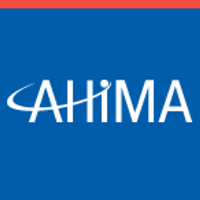 Journal of AHIMA outlines the leading role HIM professionals play in reimbursement models’ changes to physician and outpatient coding protocols
Journal of AHIMA outlines the leading role HIM professionals play in reimbursement models’ changes to physician and outpatient coding protocols
Recent shifts in healthcare reimbursement models have trended away from a fee-for-service payment system, and instead tied payments to the quality of care provided. These shifts provide opportunities for health information management (HIM) professionals to help physicians code more completely and precisely to meet requirements under the new reimbursement models.
The article, “Money Troubles: Changing Reimbursement Models Shake Up Physician and Outpatient Healthcare Industry,” in the September issue of the Journal of AHIMA (@AHIMAResources), addresses the reimbursement system changes facing physicians and outpatient facilities and the impact on physician and outpatient coding. It also discusses how newly introduced legislation, such as the Medicare Access and CHIP Reauthorization Act (MACRA), affects coding protocols in these specific settings by requiring more intricate coding, and increasing the need for programs that improve documentation.
“HIM professionals continue to quickly adapt to the changing reimbursement models making their expertise in coding and documentation an invaluable resource to physicians and outpatient facilities during the transition process,” said AHIMA interim CEO Pamela Lane, MS, RHIA. “We have more opportunities than ever to extend our clinical documentation improvement (CDI) skills to the areas in healthcare that are most in need of updated training, and show that every organization needs to know and understand their data and how to improve it.”
The challenge for physicians and HIM professionals tasked with documentation lies within the new Hierarchal Condition Category (HCC) coding system, which is driven by diagnosis and derived from conditions that are monitored, assessed or treated. Although these codes were implemented in 2004, they were largely unused until the Affordable Care Act (ACA) and MACRA made them more important for assessing a patient’s acuity, helping to predict expenditures on a patient for a coverage year. Previously, reimbursement focused solely on the first listed diagnosis, or the condition that prompted the patients to see medical treatment, not on additional conditions.
Specific physician groups and outpatient facilities that are experiencing reimbursement system changes as outlined in the article include:
- Physician practices: Reimbursement changes have put additional emphasis on showing evidence of medical necessity, which requires additional specificity in documentation. Smaller offices often lack resources that larger hospitals and healthcare systems have for CDI initiatives that will help this process.
- Behavioral and rural health physician practices: While these practices have done well keeping up with coding standards, additional focus should be put on ensuring providers stop using unspecified codes.
- Home health: This group of health providers continues to follow the progress of the Improving Medicare Post-Acute Care Transformation (IMPACT) Act, which works to standardize post-acute care facilities. With these patients, all codes must follow a condition from its beginning, even though it may last 60 days or more.
Also in this issue:
With the increasing digital advances and changes in health information management, generations in the workplace (which could total five in 2020) are adapting in their own ways. In order to work as a team, communication and collaboration is key. The article “Mending the Generation Gap: How to Manage Diverse Perspectives in a Five-Generation HIM Department” outlines some of the characteristics of each generation in the workplace, identifying how to learn, adapt and leverage their strengths in HIM.
Read these articles and more in the September issue of the Journal of AHIMA or online.
About AHIMA
The American Health Information Management Association (AHIMA) represents more than 103,000 health information professionals in the United States and around the world. AHIMA is committed to promoting and advocating for best practices and effective standards in health information and to actively contributing to the development and advancement of health information professionals worldwide. AHIMA is advancing informatics, data analytics, and information governance to achieve the goal of providing expertise to ensure trusted information for healthcare.
